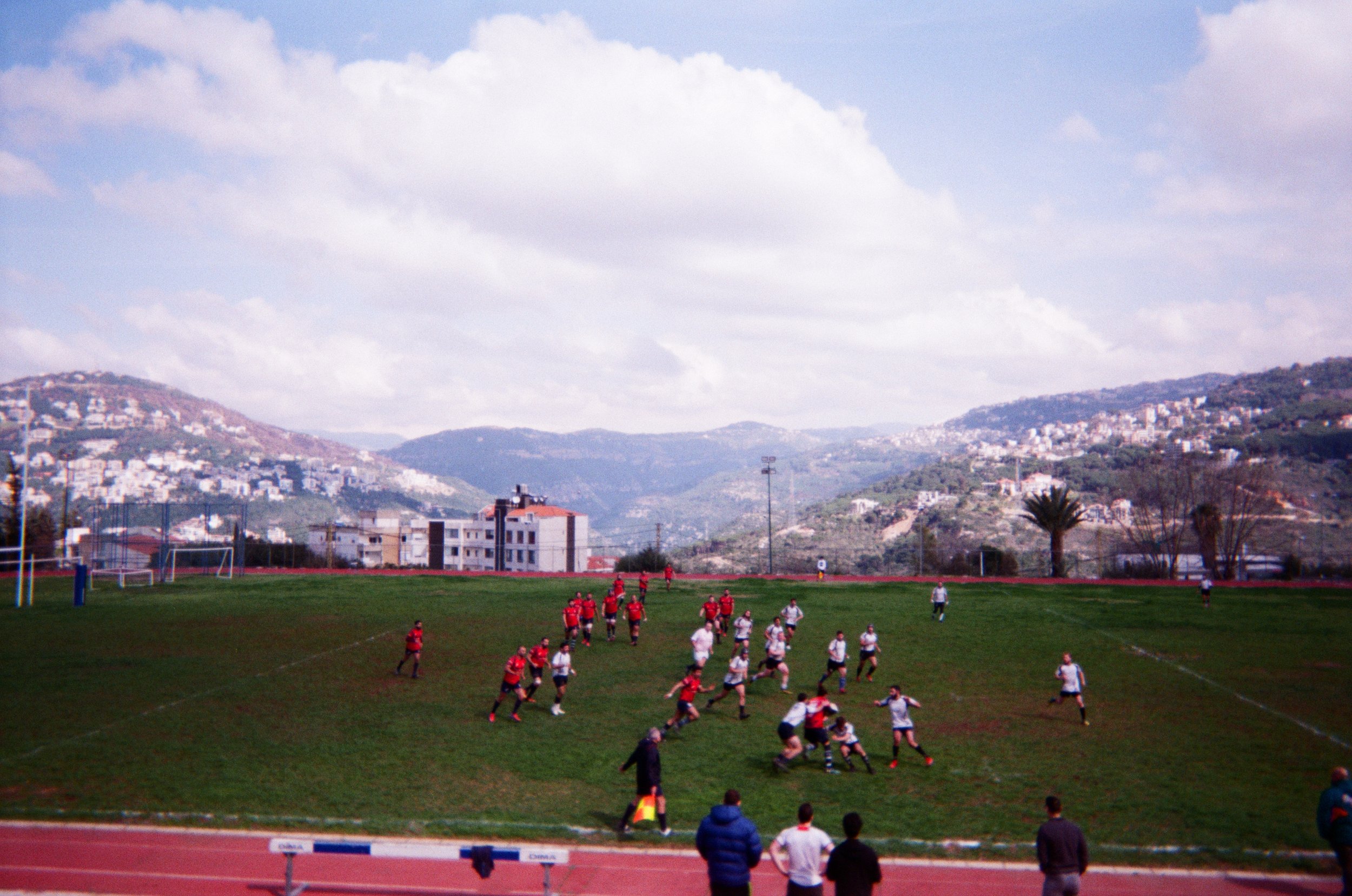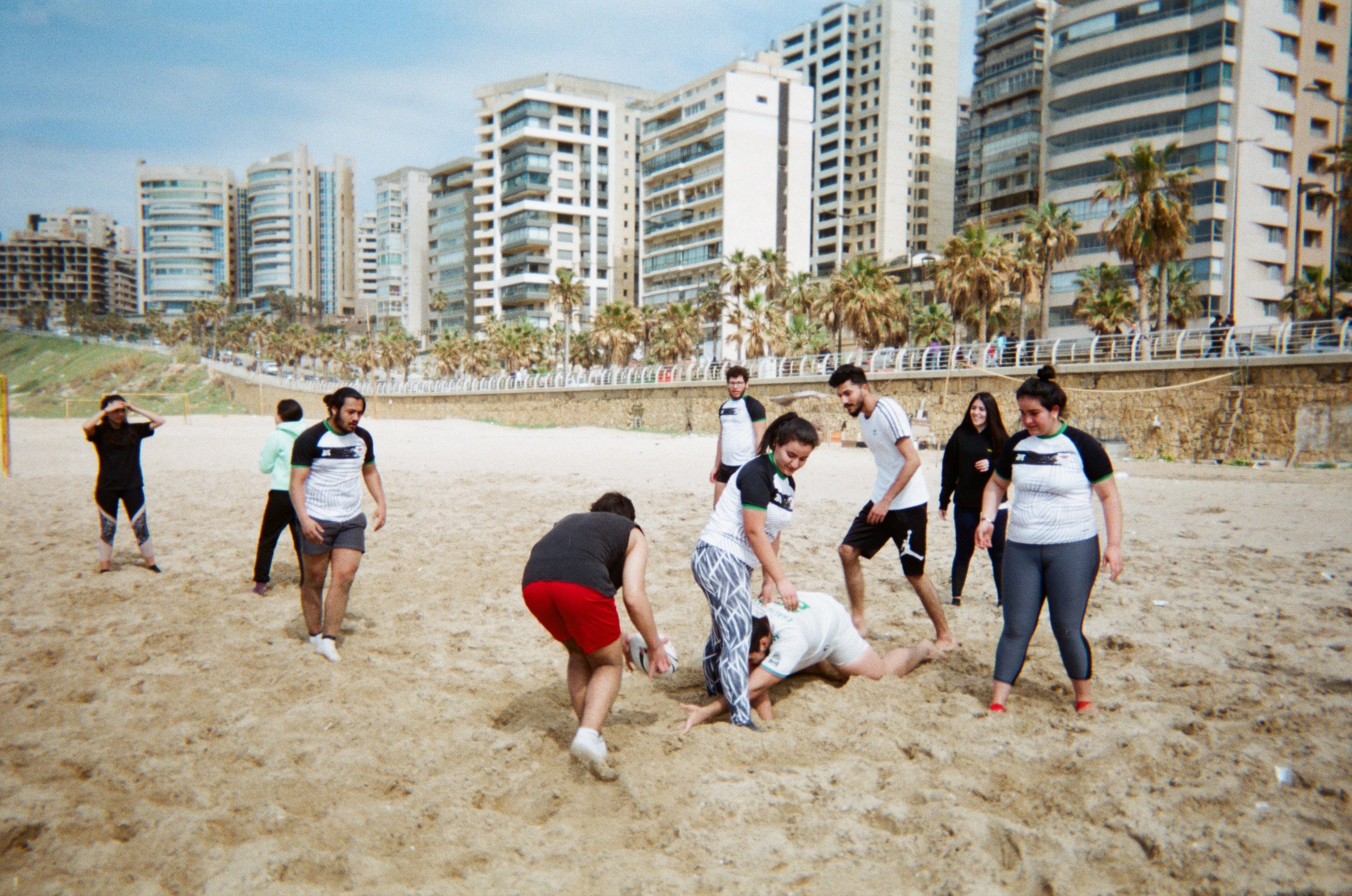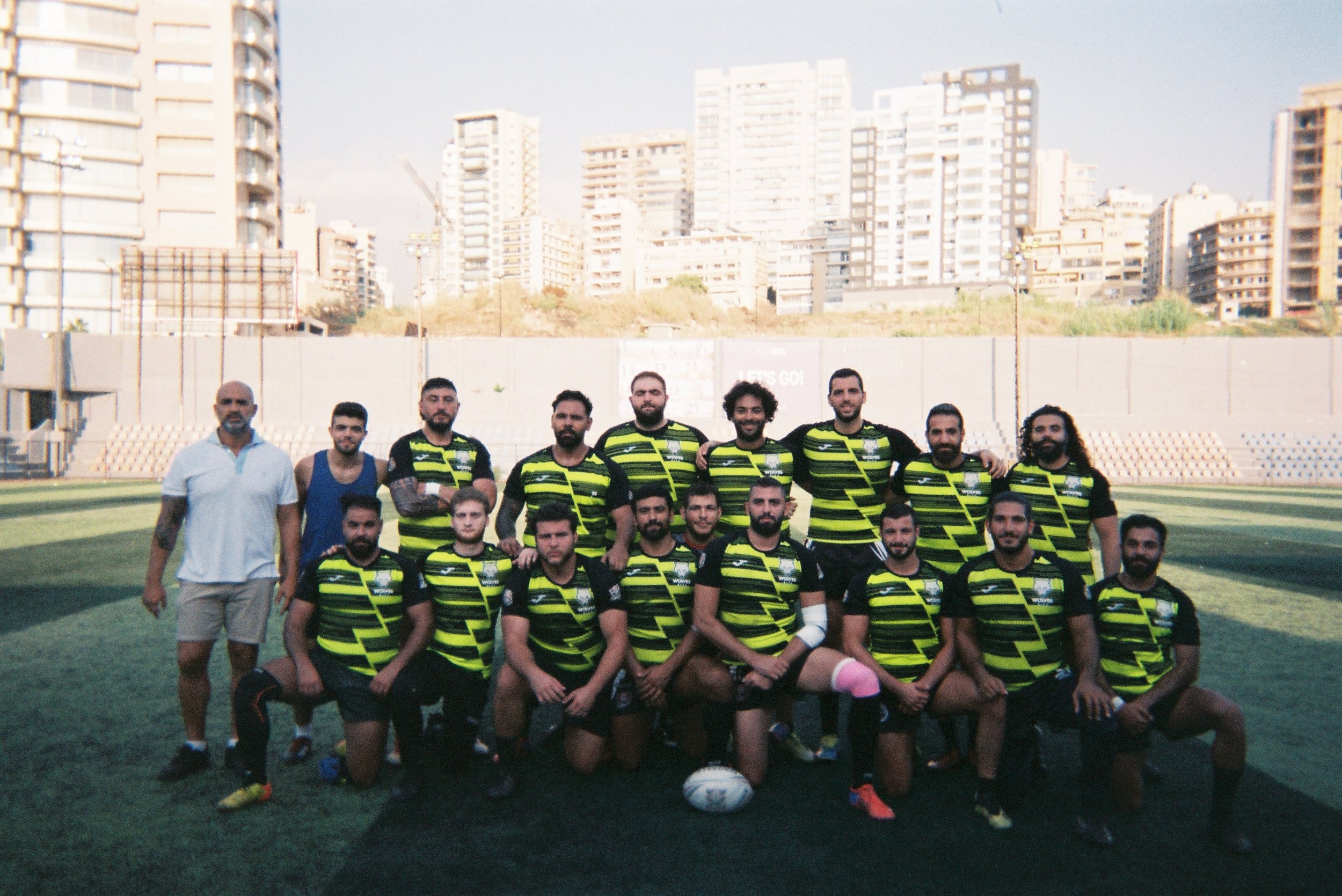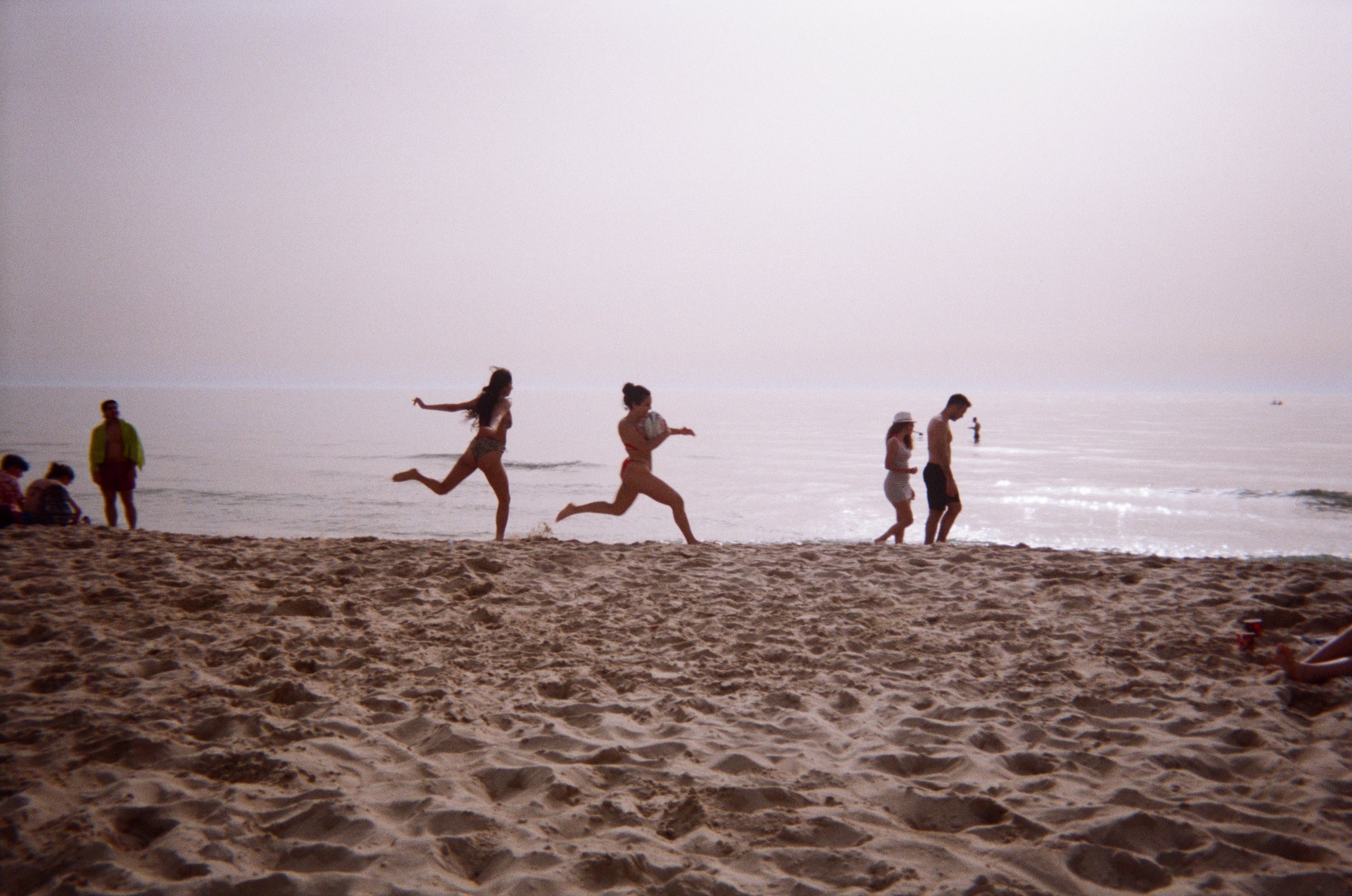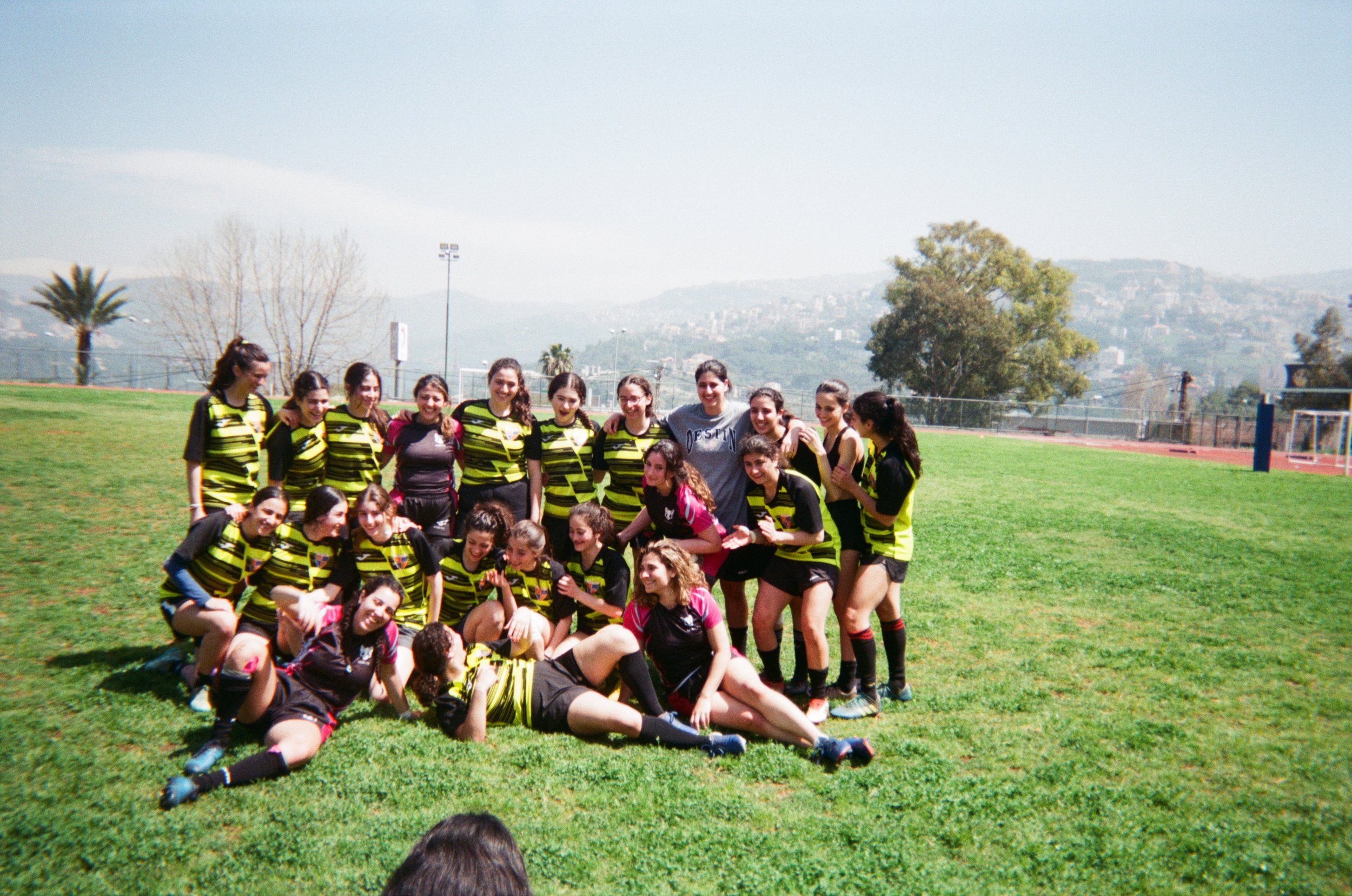Lebanon And Palestine: A Rugby Story
Ziad Agha, Lebanon
We teamed up with Rugby League World Cup 2021 for a special series. From Jamaica, Brazil and Lebanon, to England, New Zealand and the Cook Islands, our series documents the personal journeys of players to the Rugby League World Cup 2021 – across the Men’s, Women’s, and Wheelchair tournaments.
Ziad Agha tells us of his pride in representing both Lebanon and Palestine, and his journey from beach rugby to international tournaments.
Can you introduce yourself and tell us about your current rugby life?
My name is Ziad Agha, I am 26 years old, and I am a Palestinian resident of Lebanon, where I have lived for my whole life. I am a Computer Science graduate from the American University of Beirut, and I now work as a Senior Android Developer and Technical Product Owner. I am also very proud to be a rugby league player in Lebanon and have been since 2013. I have had a very diverse experience from the collegiate level to senior clubs to the international Lebanon Cedars (our national team) in both 13s and 9s competition.
I also play rugby union in Lebanon with a local club in 15s and 7s, and as a Palestinian, I play with and captain our national team. We have a team based in Lebanon. But whenever we play internationally, there are players who join us from Jordan or Palestine. But the base of the team has always been in Lebanon since the team was created there.
I have just moved to France and have found a local rugby union club to start training and playing with and am looking for a rugby league team to join soon.
I was born in Lebanon and have lived my entire life in Beirut. My father was born here as well. My mother, who is also Palestinian, was born in Qatar and lived her childhood there but then moved to Lebanon. Being a Palestinian in Lebanon comes with its financial and social challenges. My father is a dentist, but because he is Palestinian, he is not allowed to work in Lebanon except inside refugee camps. We faced many financial difficulties throughout my childhood.
Despite more than 50 years of being in Lebanon, you still see a bit of discrimination against Palestinians. After graduating from the American University of Beirut (one of the best in the Middle East), I still faced employment issues because of my nationality. This is one of the things that made me love rugby - the fact that I have never felt any discrimination or difference between myself and any other player, and even getting the chance to represent Lebanon internationally.
What has been your rugby journey up until now?
My rugby journey began when I started university at the American University of Beirut. That is where I discovered and learned rugby league and started playing with the varsity team. I also joined a local club (Wolves RLFC) and have been playing with the team since then – I am now captain and manager.
Over the years I have had several opportunities to play overseas, starting with a tour we took to South Africa with the university team.
I have also had the honour to represent Lebanon internationally on several occasions starting with a tour of Serbia with the U21 Cedars and a match against Italy held in Lebanon.
Rugby has been a huge part of my life and I have had to make a lot of sacrifices over the years to make sure I kept learning and growing - from late practices to long bus rides and juggling my education and work with practices and games all year long.
As a Palestinian, I have had the chance to play with our Palestinian team based in Lebanon and have captained the team in Arab 7s tournaments, West Asia 7s tournaments and local 9s tournaments.
My best rugby moment thus far was when I went to Australia in 2019 for the 9s Rugby League World Cup with Lebanon. I had never played in an international tournament on this scale. I was the only local Lebanese player to be selected to travel all the way down to Sydney. I still remember the photoshoot we did at the Sydney Harbour Bridge, seeing players I had only ever seen on TV in the NRL. It was such a surreal experience.
I learned so much from getting the chance to train with the elite Lebanon team based in Australia. After a few training sessions I saw I could match up to the other players in skill and it really gave me the belief that I was not here by mistake. I deserved to be there.
My worst moments have been all the times I had to take a break for injuries, which are a big part of our game. The worst was the injury I had in 2017 which ruled me out of selection for the 2017 Rugby League World Cup.
What did you try to show with the photos? Was there any wider meaning with any of the photos?
The most important thing I tried to show is the huge diversity of rugby that you can find in Lebanon - League, Union, touch, men, women, and kids. Rugby is a diverse sport, and we have it all. The people of Lebanon really do care about the future growth of rugby even amidst the toughest of times that Lebanon is going through now economically, politically, and physically.
The photos have a lot of different rugby people who mean a lot to me or have done a lot for the sport in Lebanon, including my teammates from my League team Wolves RLFC, my Union team Beirut Phoenicians, and Lebanon Phoenix (Union national team). They were mainly taken during practices, games, and tournaments like the Lebanon Touch tournament.
I showed my Palestinian team during training mostly by the beach, due to the lack of funding for actual fields.
You can also see the Aconites, who are a group of women’s players. They are so motivated even though the women's division is small in Lebanon, with little to no international experience. But they still train every week to grow their skills.
Finally, I showed my training spot in Lebanon, a tiny "gym" at my place of work. It was around 7am, which is when I usually go for my daily workouts because of my busy schedule with work from 9am to 6pm and then the various rugby trainings I have all throughout my week. This is the only time I can find to fit in my training sessions. As modest as it looks, I have been doing this for a year and have found my rhythm with minimal equipment and more body weight exercises to try and stay fit and game ready for my rugby.
What does rugby league and playing for Lebanon and Palestine mean to you?
It is such a great honour for me to have had the chance to play and represent both my countries Lebanon and Palestine.
I take pride in playing for both national teams. Even though I do not hold Lebanese nationality, I do feel like I am Lebanese, as I have lived my entire life here and have been brought up with the Lebanese culture all around me. The privileges I have had in rugby have all come from my Lebanese participation.
As for Palestine, it is the country of my origins and whose flag I wear and hold proudly above my head. It brings me great joy to play and represent Palestine, especially given the internationally known situation my country goes through. Any success I could ever gain for Palestine brings great pride to myself, my family, and my country.
I love captaining Palestine and leading the team in all international competitions. With Lebanon I have many more senior players and teammates that I learn from. With Palestine I am one of the most experienced, so it is my duty to teach and grow the sport as much as I can. It is a big responsibility to captain Palestine but one that I welcome greatly. Every metre gained in a game for Palestine means so much for the sport. Every victory is a huge deal for us.
When I wear the Palestinian flag and emblem, every small success I have reflects my country's strength and resilience, and every cooperative step taken by the team shows the unity the country breathes into us.
In 2021 we participated for the first time in the West Asia Rugby 7s tournament. At some points I felt like I had the weight of an entire country on my back, waiting for me to bring them their first success.
What role does rugby league play in your community and in Lebanon?
In Lebanon, rugby is not very common, and you would be surprised how many people do not know what rugby is or that we have such a diverse group of competitions. But on a community level, I see the difference rugby has made by bringing people from various parts of Lebanon and different backgrounds together to play one sport. It teaches them how to play in a single cooperative team which reflects into their lives and the role they play individually in the community.
Lebanon is a very diverse country – religiously, financially, and socially. The players you see come together from completely different locations in Lebanon. Most do come from the capital Beirut, but then others all the way from the north of Lebanon (which is considered one of the poorest areas), and others from the south.
Lebanon has always been pushed apart internally because of different religious backgrounds and sects, but I am glad this is something you never see in rugby. You never hear anything about players fighting over such trivial matters. This is something I wish to see one day reflected in society as a whole - that it does not matter who you are, where you come from, what you look like, or who you love. You can come to the field, leave all that outside, and just enjoy the sport.
In the darkest days of Lebanon after the August 4 explosion two years ago, a big rugby community went down to the sites affected and helped the people by cleaning and rebuilding. Rugby teams grow a real sense of unity, which makes a clear impact on their communities.
How challenging has it been to get your teams together amidst the economic and political issues?
These past two years have definitely been the most difficult for rugby in Lebanon, from the internal economic and political issues to the worldwide epidemic that we all had to suffer. From pushing the players to come together for training after a long drought to the economic issues which made transportation costs for many players and field rental for teams very difficult.
These were issues that all teams had to go through and often needed individual support to keep things moving. I remember days when I needed to pick up several players to come to practice because they couldn't make the trip on their own, and then other days where I would need to take my bike for a 40-50 minute journey to get to a game because fuel was so scarcely available.
But one thing I definitely noticed was the fact that players had to go through this much trouble to come to training or make it to a game, and this reflected well during the training sessions and games. Players really wanted to be there, and it showed on the field.
What ambitions do you have for the future?
At 26, some people are telling me that I am reaching the end of my best times in rugby, as they see internationally much younger players going to play in the NRL. I see the complete opposite. I feel like I am just now reaching into my peak rugby days. I have never felt better on the field mentally and physically.
This is the time I feel I want to push the hardest to try and reach the furthest I can. Right now, my goal is to represent Lebanon in the 2022 Rugby League World Cup, and then after I want to reach the NRL. It has always been a dream of mine and I have been working hard to try and reach a stage big enough to be seen. I hope the World Cup in England will be my ticket.
What do you think the future looks like for rugby league after the Rugby League World Cup? What would you like to change?
Internationally rugby league is doing well with more and more people playing the sport daily, and the World Cup helps boost that exposure. For Lebanon, the impact of the 2017 World Cup participation was quite modest, but a lot more people in Lebanon now know what rugby league is and what our status is internationally. A lot more people are awaiting this year's competition eagerly. The World Cup has already boosted the number players joining the sport and working hard, which showed in the training camp that was held in Lebanon to select local players to go to the World Cup.
I hope the RLWC will boost the federation's work and players' interest even more in the coming years, and I hope it will rub off on our women's division, which is currently growing but definitely needs more work to reach a better spot.

